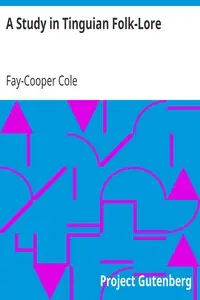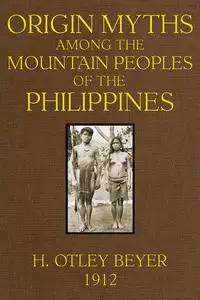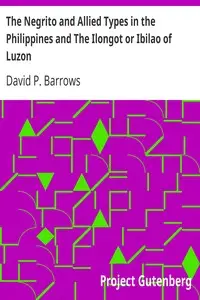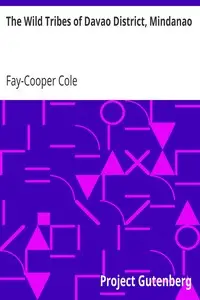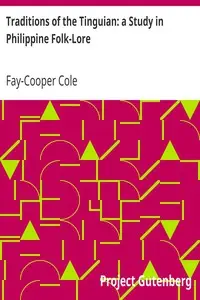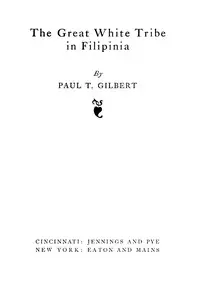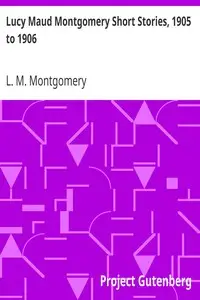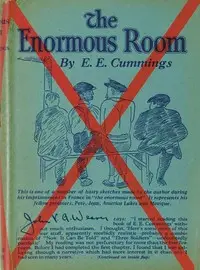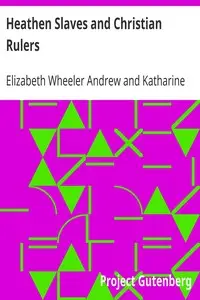"The Tinguian: Social, Religious, and Economic Life of a Philippine Tribe" by Fay-Cooper Cole is a study of the Tinguian people, a non-Christian tribe living in the mountains of Abra province in the Philippines, written in the early 1900s. The book probably takes a look at their society, what they believe in, and how they make a living, with the goal of giving a full view of their lives and interactions with each other and the world around them. It starts by introducing the Tinguian, correcting wrong ideas about where they came from and who they are. Cole talks about their varied background, looking at their past movements and traditions that made them who they are today. The beginning sets things up for later chapters, paving the way for detailed looks at their world, life events, and religious customs. It points out the contrasting views of the Tinguian, hinting at a deep, detailed understanding of their culture that will be revealed.
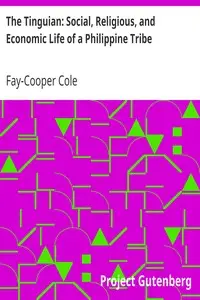
The Tinguian: Social, Religious, and Economic Life of a Philippine Tribe
By Fay-Cooper Cole
Discover a little-known tribe's fascinating world of mixed origins, unique customs, and complex societal structures in the mountains of the Philippines.
Summary
About the AuthorFay-Cooper Cole was a professor of anthropology and founder of the anthropology department at the University of Chicago; he was a student of Franz Boas. Most famously, he was a witness for the defense for John Scopes at the Scopes Trial. He graduated from Northwestern University in 1903 and became Assistant Curator of Anthropology of at the Field Museum of Natural History the following year. He led the museum's Philippine expeditions, collecting more than 5,000 objects, traveling together with his wife, Mabel Cook Cole, with whom he co-authored The Story of Man. He helped establish the University of Chicago's graduate program in Anthropology and started an archeological survey of Illinois. Cole also played a central role in planning the anthropology exhibits for the 1933 Century of Progress World's Fair. He was elected a Member of the American Philosophical Society in 1941.
Fay-Cooper Cole was a professor of anthropology and founder of the anthropology department at the University of Chicago; he was a student of Franz Boas. Most famously, he was a witness for the defense for John Scopes at the Scopes Trial. He graduated from Northwestern University in 1903 and became Assistant Curator of Anthropology of at the Field Museum of Natural History the following year. He led the museum's Philippine expeditions, collecting more than 5,000 objects, traveling together with his wife, Mabel Cook Cole, with whom he co-authored The Story of Man. He helped establish the University of Chicago's graduate program in Anthropology and started an archeological survey of Illinois. Cole also played a central role in planning the anthropology exhibits for the 1933 Century of Progress World's Fair. He was elected a Member of the American Philosophical Society in 1941.


